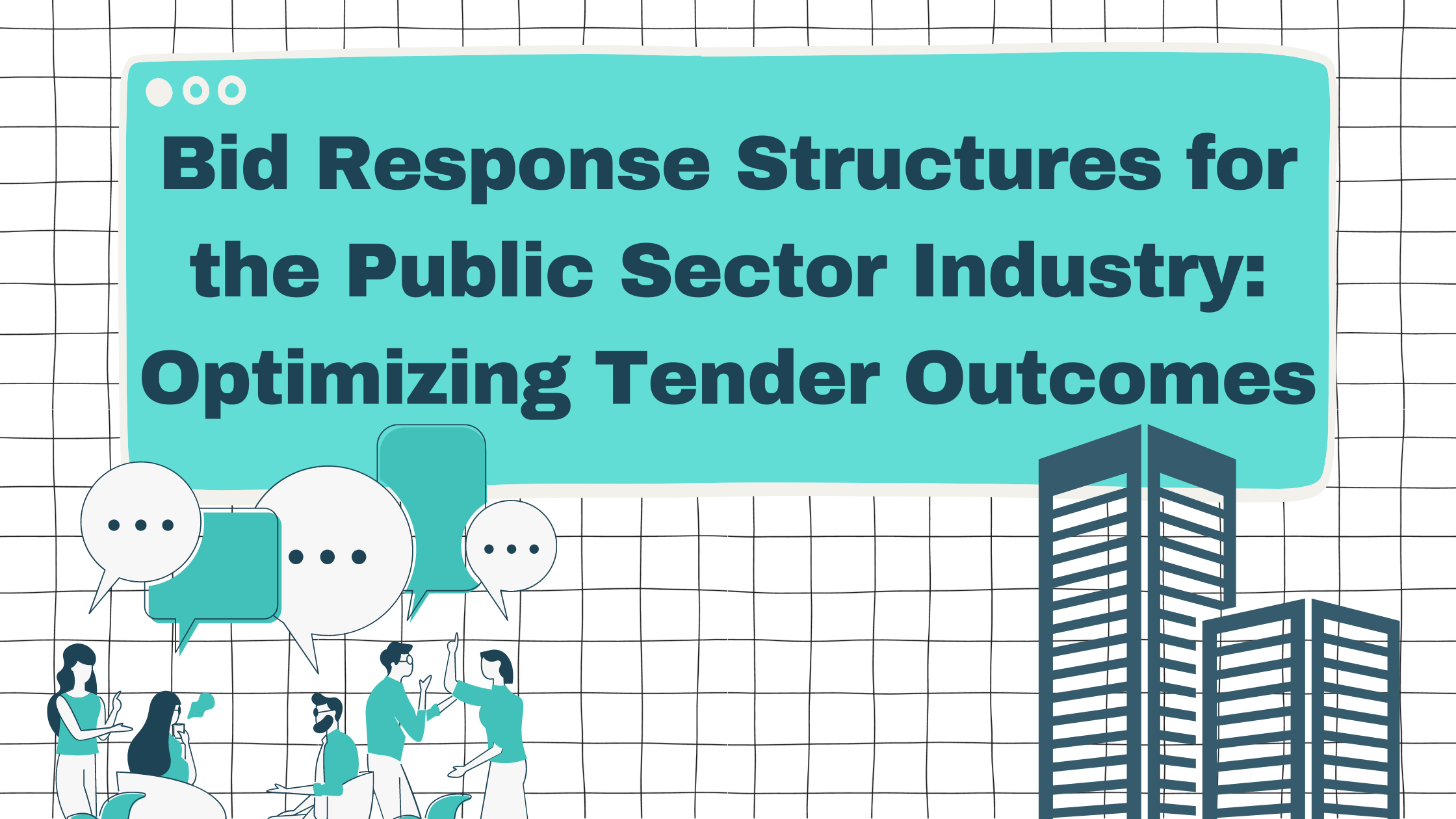How RFP Writing and Proposal Writing Services Can Overcome Competition in High-Stakes Auctions

Need Help with Your Bid?
Get in touch by filling out the form and one of our advisors will be in contact.
Contact UsDoes Competition Matter When Bidding in High-Stakes Auctions?
Competition in the bidding process is a pivotal element that can significantly influence the dynamics of market transactions. When businesses bid for contracts, competition ensures that there is a balance between price and quality, often leading to innovation and better services. Understanding the potency of competitive bidding becomes critical as it can reduce costs, enhance quality, and promote fair play in various sectors. It's essential for you to recognize the strategic implications of competitive bidding on your operations and decision-making.

Navigating through the legalities of competitive bidding is equally crucial, as regulations are designed to prevent collusion and maintain a level playing field. The strategic considerations you undertake can have a profound effect on the outcomes of the bidding process. It is important for you to stay informed and compliant with competitive practices, as this will not only safeguard your interests but also ensure the integrity of the markets in which you participate.
Key Takeaways
- Competition in bidding has a direct impact on improving cost efficiency and quality.
- Awareness of the legal framework is essential for compliance and successful bidding strategies.
- Adhering to competitive practices ensures market integrity and positions you favorably in the bidding landscape.
Understanding the Bidding Process
When you're vying for a contract, grasping the nuances of the bidding process is crucial. This ensures you can navigate through competitive and negotiated methods effectively and respond to a Request for Proposal (RFP) with precision.
Competitive Bidding Fundamentals
Competitive bidding is the cornerstone of fair procurement, designed to foster a transparent environment where multiple vendors are invited to submit their bids. This process allows you, as a bidder, to present your proposal on how you intend to meet the requirements specified by the buyer at the most cost-effective price. The goal is to win the contract while ensuring the buyer gains the best value for money.
Types of Bidding Methods
Two primary methods dominate the bidding landscape:
- Open Bidding: Here, any qualified bidder can submit a tender. Your bids are usually public, maintaining transparency and enabling a fair evaluation.
- Negotiated Bidding: This is a less formal approach and often follows when open bidding is inconclusive. You engage in direct negotiations with the buyer, often allowing for tailored solutions and flexible pricing.
Role of Request for Proposal (RFP)
An RFP is a detailed document that initiates the competitive bidding process, outlining what the buyer needs. By carefully analyzing the RFP, you can tailor your bid to align closely with the buyer's criteria. It's important as it shapes your bid and provides a framework for the bid evaluation process—ensuring your proposal is measured against a set standard.
Impact of Competition in Bidding
Competition in bidding plays a crucial role in defining the value and cost-efficiency of goods and services procured by entities. It affects market dynamics, influencing prices and economic outcomes for both the buyers and the suppliers.
Advantages of Competitive Bidding
Competitive bidding ensures that you receive the best value for your money as it compels suppliers to offer their best possible terms. It doesn't just potentially lower costs for your procurement but also incentivizes vendors to innovate and improve the quality of their offerings. This competitive bidding process is integral to maintaining a healthy market where companies and government agencies can source goods and services efficiently.
Influence of Competitive Dynamics on Prices
The heart of competitive dynamics in bidding lies in its ability to influence prices. As you introduce more competition into a bidding environment, suppliers are likely to quote lower prices to win contracts, which can result in significant savings. However, an overly aggressive price war may lead to unsustainable bidding and compromise on the quality of goods and services.
Economic Effects of Competition
For the economy as a whole, competitive bidding can lead to a more efficient allocation of resources. When you are part of an economic system that values competition, it can help stimulate the market, encourage innovation, and even impact job creation. In this respect, competition acts as the engine of the economy, with direct benefits for consumers, including lower prices and improved choices. However, it is essential to consider that too much competition can sometimes drive out financially weaker competitors, which can reduce marketplace diversity.
Legal Framework Governing Competition
When you participate in public procurement or are involved in bidding processes, it's essential to understand the legal frameworks that enforce competition. These laws are designed to prevent anti-competitive behavior, ensure a level playing field, and protect consumer interests.
EU Competition Rules and Procurement
In the European Union, competition rules are fundamental to ensure that companies compete fairly in procurement processes. Article 101 TFEU prohibits agreements which may affect trade between member states and which prevent, restrict, or distort competition. This includes bid-rigging or collusion during public tenders. Additionally, Article 101(3) TFEU allows certain exceptions for agreements that contribute to improving production or distribution, or promoting technical or economic progress.
Competition Law and Public Procurement
In the UK, competition law is defined by the Competition Act 1998 and the Enterprise Act 2002. These laws address anti-competitive agreements and abuses of dominant market positions. When you're bidding for contracts, it's crucial to understand these rules to avoid sanctions, including fines and invalidation of contracts. The Competition Act 1998 closely mirrors the principles laid out in Articles 101 and 102 of the TFEU.
Regulatory Safeguards Against Restriction of Competition
Regulatory bodies ensure that competition laws are upheld during procurement. For instance, the UK's Competition and Markets Authority (CMA) oversees and enforces compliance with competition regulations. When engaging in cross-border activities in Europe, both EU and national competition laws apply, and the EFTA Court may be involved in cases within EFTA states. Regulation is primarily aimed at preventing bid-rigging, price-fixing, and market sharing which can skew procurement processes to the detriment of both competitors and consumers.
Strategic Considerations for Bidders

When preparing to bid on public sector contracts, it's crucial to meticulously evaluate the opportunity's specifications and requirements while also weighing the benefits and drawbacks of cooperative bids. You should also undertake a comprehensive analysis of the market landscape to position your bid competitively.
Assessing the Size and Complexity of the Contract
- Size of the Contract: Consider the financial and resource commitments necessary for the potential contract. If the contract exceeds your current capabilities, this may require scaling operations or acquiring additional resources.
- Complexity: Evaluate the technical, operational, and performance standards required. Contracts with higher complexity may necessitate specialized knowledge or partnerships to meet the deliverables successfully.
Consortium and Joint Bids: Opportunities and Challenges
- Consortium Bid: Aligning with other organizations can amplify your collective experience and resources. As the prime contractor, you must ensure effective coordination and clear role definitions among all parties.
- Joint Bid: When you enter a joint bid, it often entails a more in-depth collaboration with another bidder. This can pose both opportunities for market sharing and challenges like aligning strategic goals.
Pre-bid Activities and Market Analysis
- Market Analysis: Conducting a thorough market analysis ensures you comprehend your position relative to competitors. Pay attention to pairwise comparisons to gauge your strengths and weaknesses.
- Pre-bid Activities: Engage in pre-bid activities such as networking events, industry conferences, and early dialogues with the procuring entity to understand better what they value in a proposal.
Competitive Practices and Compliance
When participating in competitive bidding, it is crucial for you to understand the importance of compliance with competition law and the emphasis on fair procurement practices. This ensures that the process remains transparent and fosters a level playing field while encouraging diligence and safeguarding innovation.
Ensuring Transparency and Fair Play
You need to maintain transparency throughout the bidding process. This involves clear communication of procurement criteria and consistent application of rules to all participants. Your due diligence in this stage is not only ethical but also a legal necessity to prevent accusations of favoritism or unfair practices. Make sure you are familiar with the guidance provided by GOV.UK on fair business competition.
Anti-competitive Behaviors and Exemptions
It is essential to recognize behaviors that can be termed as anti-competitive, such as collusion and price-fixing. While most of these behaviors are prohibited by law, there are specific exemptions for certain actions that are objectively necessary for co-operation or for achieving efficiencies. However, these are tightly regulated, and any claimed exemptions must be substantiated with clear evidence that proves the co-operation brings about identifiable consumer benefits. Details on exemptions can be found within the Overview of UK Competition Law by Ashurst.
Impact of Regulations on Innovation and Execution
Compliance with competition law can have a significant impact on your ability to innovate and execute effectively. Regulations safeguard against the risk of monopolies, ensuring that businesses, including yours, are encouraged to innovate in order to stay competitive. Nevertheless, stringent regulations can at times be seen as a barrier to certain cooperative behaviors that might be beneficial for advancing innovation. It is your task to navigate these regulations smartly to strike a balance between competing effectively and upholding the legal framework. Insight into the balance between competition law and business practices can be gained from resources like the Pinsent Masons guide.
Frequently Asked Questions

In bidding, your strategy and outcomes are significantly influenced by the actions of competitors. Understanding the nuances of competitive bidding can give you an advantage and help avoid common pitfalls.
Why do bidding strategies need to account for competitors' actions?
Your bidding strategy must consider competitors’ behavior because their actions can directly impact the market dynamics and the final cost of goods or services. Being aware of [competitive strategies](competitive bidding - Definition, Process, Benefits) allows you to position your bid more effectively.
How can competitive bidding benefit a company's procurement process?
Competitive bidding drives down costs and increases the value obtained through procurement by ensuring that suppliers offer their best prices and terms. This [process ](competitive bidding process) also fosters transparency and fairness.
What should be considered before bidding on a competitor's keywords in advertising?
Before bidding on a competitor's keywords, assess the potential cost against the likelihood of conversion and consider the strength of your own product or service in comparison to theirs. Monitoring the bidding process helps maintain budget efficiency.
What are some general principles or rules that govern the bidding process?
The bidding process is typically governed by principles like transparency, fairness, and consistency. Ensuring these principles helps achieve a fair evaluation of all bids and a smooth bidding cycle.
What are potential downsides to engaging in highly competitive bidding situations?
Engaging in highly competitive bidding can lead to a 'winner's curse,' where the winning bid exceeds the intrinsic value of the item or contract, reducing the overall benefit. It can also strain resources and lead to aggressive bid preparation strategies.
How can understanding competitor behavior influence bid decisions and outcomes?
By analyzing competitor behavior, you can predict their bidding patterns and adjust your approach, potentially resulting in more favorable outcomes. Knowing when to bid, how much to bid, and when it is prudent to walk away can all be refined by understanding competitor behavior.
Ready to start your search?
Get in touch by filling out the form to the right and one of our advisors will curate a personalised selection for you.
Get in touchBlogs. Guides. Helpful advice.

Mastering Proposal and RFP Writing for Government and Public Sector Opportunities

Proposal and RFP Writing Services: Enhancing Public Sector Tender Outcomes

.svg)